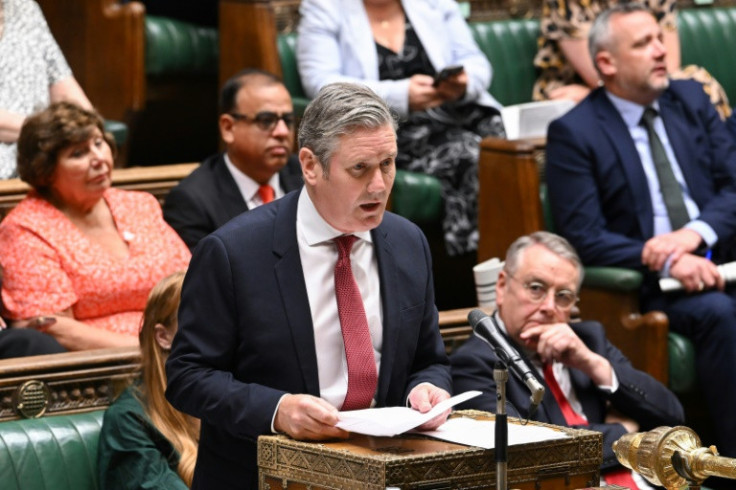Labour vows to renegotiate Brexit deal, Keir Starmer pledges
Although unclear if the EU would be willing to renegotiate the accord, Starmer's pledge is likely to prove popular with many Labour voters, who have been critical of the current Brexit deal.

Labour leader Keir Starmer has pledged to seek a major rewrite of the UK's Brexit deal with the European Union (EU) if his party wins the next general election.
In an interview with the Financial Times, Starmer said that the deal negotiated by Boris Johnson was "not a good deal" and that there was "more that can be achieved across the board" between the UK and EU.
He ruled out rejoining the EU, the customs union, or the single market but said that he would seek to improve the UK's trading relationship with Brussels in a number of areas, including business, veterinary compliance, professional services, security, innovation, and research.
Starmer's pledge is likely to prove popular with many Labour voters, who have been critical of the current Brexit deal. However, it is unclear whether the EU would be willing to renegotiate the deal, which has only been in place for two years.
The EU has previously said that it is open to discussing changes to the accord, but only within the existing framework. The EU is also likely to be wary of giving the UK any special treatment, as this could encourage other countries to leave the bloc.
Despite the challenges, Starmer is determined to pursue a new Brexit deal. He believes that the current deal is not in the UK's best interests and that it is holding back the country's economy.
He also believes that a new deal would help to improve relations between the UK and EU, which have been strained since Brexit.
If Labour were to win the next general election, Starmer's pledge to rewrite the Brexit deal would have a number of implications for the UK and its relationship with the EU.
It would likely lead to a period of uncertainty and instability. The process of negotiating a new deal would be complex and time-consuming, and it is unclear whether the UK and EU would be able to reach an agreement.
A new arrangement could have a significant impact on the UK's economy and political landscape. The current deal has already led to increased trade barriers between the UK and EU, and a new deal could make these barriers even worse.
The issue of Brexit has been deeply divisive in the UK, and a new deal could reignite these divisions.
The chances of success for Starmer's pledge to rewrite the Brexit deal are uncertain. The EU has previously said that it is open to discussing changes to the deal, but only within the existing framework. The EU is also likely to be wary of giving the UK any special treatment, as this could encourage other countries to leave the bloc.
The current deal is unpopular with many people in the UK, including many Labour voters. This could give Starmer a strong mandate to negotiate a new deal.
The EU is facing a number of challenges, including the war in Ukraine and the rising cost of living. This could make the EU more willing to compromise in order to reach a new accord with the UK.
Overall, the chances of success for Starmer's pledge to rewrite the Brexit deal are uncertain. However, there are a number of factors that could work in his favour.
Experts on Brexit have expressed mixed views on Starmer's pledge. Some experts have welcomed the pledge, saying that the current Brexit deal is not in the UK's best interests. They argue that a new deal would help to boost the UK's economy and improve relations with the EU.
Other experts have been more cautious. They argue that it is unclear whether the EU would be willing to renegotiate the deal, and that a new deal could lead to a period of uncertainty and instability.
Overall, the experts agree that Starmer's pledge is ambitious and that the outcome is uncertain. However, they also agree that the current Brexit deal is not working for the UK and that a new deal could be beneficial.
Starmer's pledge to rewrite the Brexit deal is a bold move. It is unclear whether he will be successful, but it is a sign that Labour is serious about improving the UK's relationship with the EU.






















